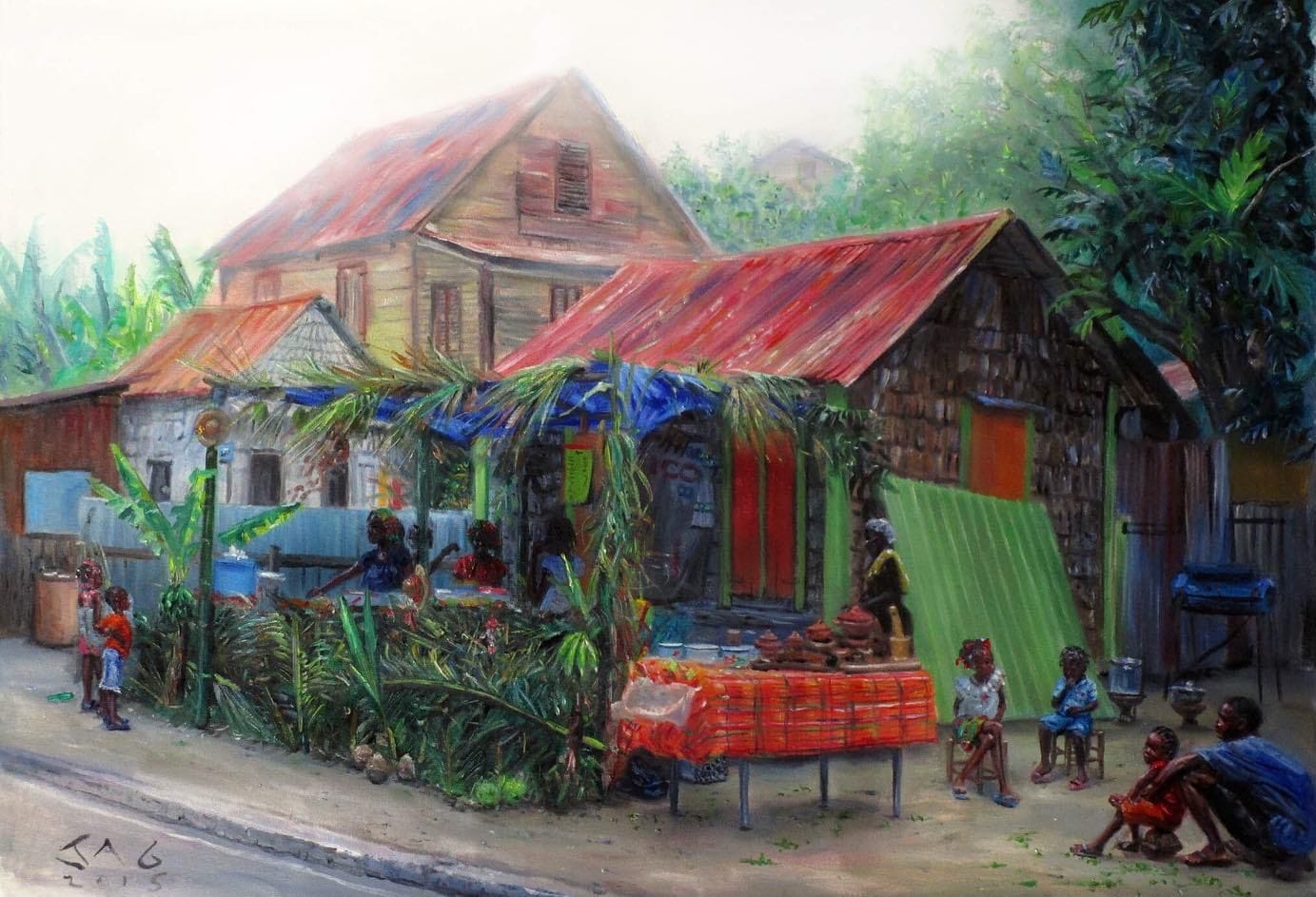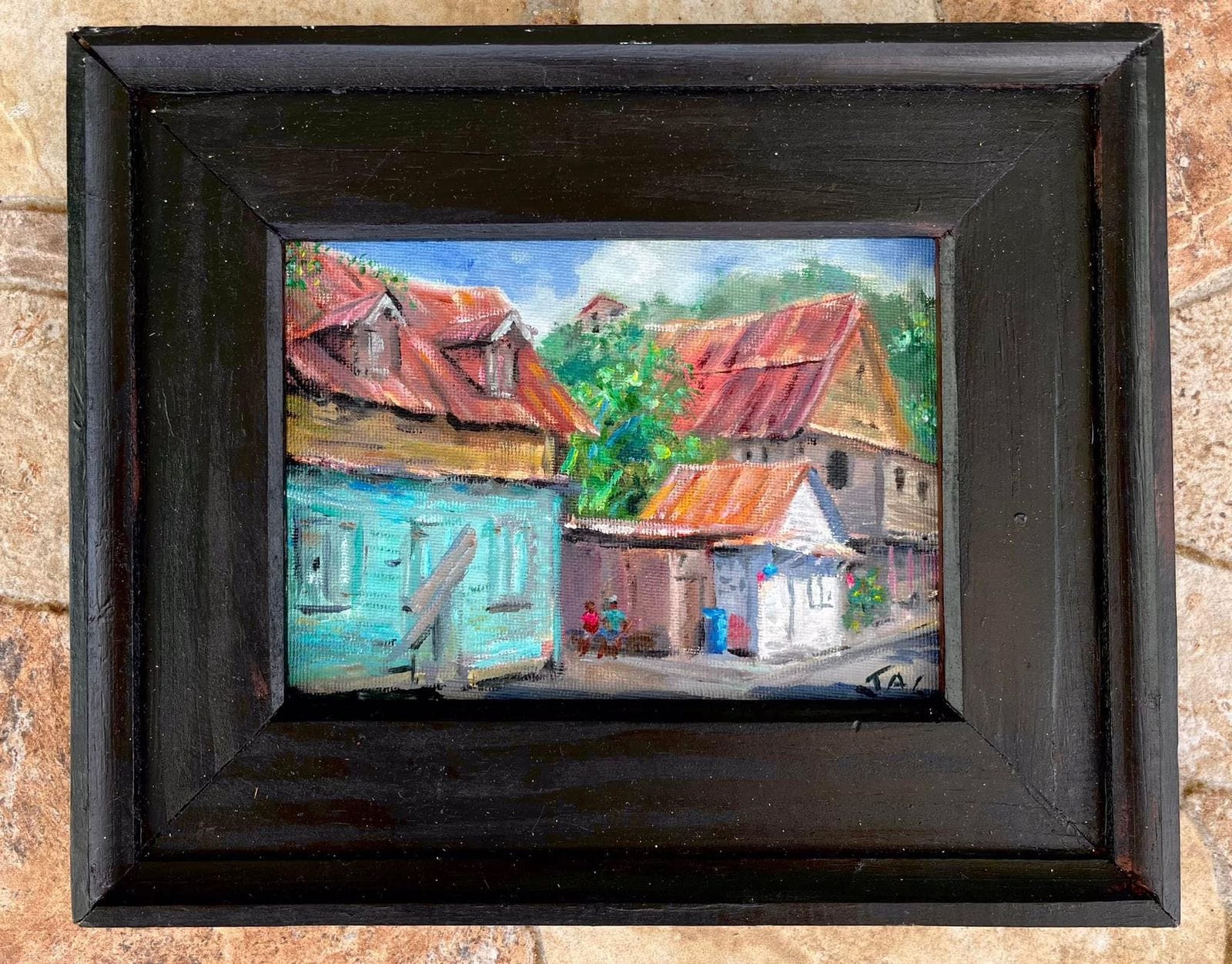The Koudmen Model for Cultural Preservation
Sadly, the current western economic model does not provide for cultural preservation, only cultural exploitation.

Saint Lucia’s Creole history is deserving of encyclopaedic study, but the focus on this Jounen Kwéyòl is the koudmen solution to our cultural conservation confusions. That the Kwéyòl language and our cultural practices endured the entrapment of slavery and Creole remain potent to this day is indicative of the sustainability of our creoleness.
Consequently, it is ironic that, after four hundred years of cultural preservation, we have forgotten the lessons taught to us by our foremothers. As usual, we try to fit the square pegs of first-world solutions into the round holes of our third-world issues.
Most of the houses (homes) I know intimately are standing because of koudmen - the Creole economic model of our foremothers. Enchanted by this concept some years ago, I wrote a poem, “Koudmen” - men of all quarters, rum (hot, ice), a bouyon with the length and breadth of the market within - working on completing a house.
This Creole economic model ensured hundreds had unshakable roofs to live under; the community-family “sewing their hands together” for each other. With no access to the “formal” economy of Banks or contractors, the community was the labour, bricks were mined from rivers, and steel was twisted by hand, each man, woman and child.
After the days’ work, and one house complete, the community would rest until another’s house was ready to go up. The payment for the community’s services was the promise of your labour in return, rum, a day’s lunch and water - in that order.
You cannot understand koudmen to be simple neighbourly love. On its face, it was a conscious decision to persevere despite access to state resources. On a deeper, more subconscious level, it acted as the formal rejection of the informal sector of Western capitalist ideals of economic participation.
This Creole model was sustainable for its participants, and it is still being practised today as the cheaper, at times more reliable, means of building a home.
Somewhere along the way - and owed to being formally taught to hate everything our mothers informally taught us - we are now asking what worth the National Trust serves.
On Tuesday, October 22nd, 2024 Parliament met to approve Value Added Tax (VAT) Exemptions for the Saint Lucia National Trust. An exemption readily considered acceptable in the sight of lawmakers was the subject of criticism by one Member of Parliament for Micoud South.
“So instead of having to pay VAT like all other commercial entities, they're not going to do so. And [...] if they were not going to be involved in any level of commercial activity, then I think I would have zero difficulties with [this motion]. But we start crossing a line,” was the MP’s objection.
The submission that the National Trust, also involved in commercial activity, should not be exempt from taxation is an affront to the koudmen model.
Koudmen is not just an economic model, it forms part of centuries of cultural understanding - you give to get back.
The National Trust - its mandate and survival - is the house that we are contributing towards. It returns our labour with timepieces of our history that we return to after losing ourselves. It labours for our children one hundred years later when the parchments of the past fade into obscurity.
This climate crisis provides an avenue for honest introspection regarding the conservation of culture. The Pacific Island country of Tuvalu is on track to become the world’s first digital country as rising coastal tides threaten to reduce it to only sandy memories. Tuvalu’s government has decided to upload pictures and digital copies of everything that identifies this country’s culture to the cloud.
This is a stark reminder of the constant threat that we, as islanders, face as natural disasters worsen by the day. “But we have mountains; we not as flat as them” - the guarded Saint Lucian remembers how the foreigner almost chipped a portion off our Piton without us even realising it.
When the cause of culture demands a price from us, we must pay in full. The Trust is not a commercial entity which we judge in numbers and profits; she is part of the community-family, and we sew our hands together to help her lift blocks and beat mortar.
The house she is building is not for her but for your children.

